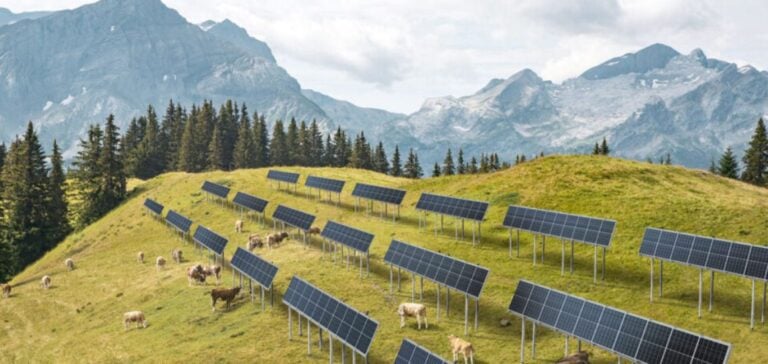Switzerland has reached a significant milestone in its energy transition. On Sunday, 69% of voters supported a new law designed to accelerate the development of renewable energies, according to initial estimates from the gfs.bern polling institute. This law, passed by parliament last year, aims to guarantee a secure and sustainable supply of electricity, based primarily on renewable energies.
A specific legislative and environmental context
The implementation of this law comes after Switzerland was condemned by ECHR (The European Convention on Human Rights) last April for its lack of initiatives against global warming. This decision has reinforced the need for Switzerland to take more concrete measures to achieve its goal of carbon neutrality by 2050. However, the law has met with opposition. A small group of environmental organizations has launched a referendum, fearing that the increased development of solar, wind and hydroelectric projects will denature Alpine landscapes and limit the possibilities for citizens to appeal against these projects.
The stakes of the referendum
Among the opponents, Pierre-Alain Bruchez, a retired economist, denounced projects such as Grengiols-Solar, which plans to install 230,000 solar modules at an altitude of 2,500 meters in the Valais. In his opinion, this project represents a “vision of horror” and he advocates the installation of solar panels on existing buildings. The referendum was also supported by the SVP (Swiss People’s Party), Switzerland’s largest party, which defends nuclear power as a means of guaranteeing security of electricity supply. Last year, nuclear power plants supplied 32.4% of Switzerland’s electricity.
Majority support for renewable energies
The new law is supported by major NGOs such as WWF (World Wide Fund for Nature) and Greenpeace. It foresees a rapid increase in hydro, wind and solar power generation, reducing the country’s dependence on imported electricity. The law particularly encourages the development of solar energy on the roofs and facades of buildings. It also facilitates the planning of wind farms and large-scale solar power plants of national interest. However, the government assures us that each project will be examined on a case-by-case basis, and that biotopes of national importance and migratory bird reserves will remain protected, although exceptions may be considered.
Future prospects and implications
The law also provides for the construction of 16 hydroelectric projects, essential for national electricity production, which accounted for 56.6% of total output last year. These projects include the raising of existing dams and the construction of new facilities. This new legislation marks a significant step forward for Switzerland in its fight against global warming and its commitment to renewable energies. While the final results will be announced later today, the overwhelming support for this law testifies to a collective will to transform the Swiss energy landscape.
Today’s decisions will have a lasting impact on the country’s energy future, underlining the importance of striking a balance between sustainable development and the preservation of natural landscapes.





















